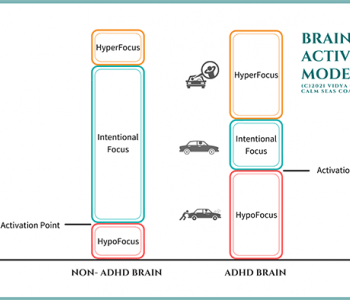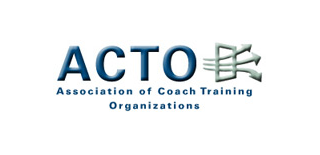Whatever You Focus On Grows
Coaches in Action
Written by Kristi McClanahan July 2002
When I was studying to become an AD/HD Coach, David Giwerc, my teacher, emphasized a great truth: Whatever you consistently focus your attention upon grows! If a person focuses on his or her strengths and successes, the world opens up to many wonderful opportunities, bringing optimism for the future. This positive outlook manifests in the form of more energy, increased creativity and a stronger sense of capability. This empowers a person to say, “Bring it on, I can handle it, I am able!”
Conversely, when a person focuses on his or her weaknesses and failures, the world is a fearful place of “whoa” and pain. The resulting negative attitude can make even a grown man cry, “WHOOOAA,” stopping him in his tracks and closing down life’s possibilities. One may start to believe he can’t succeed so he doesn’t even try, and this causes mental anguish. These fearful thoughts fill one’s day with dread and drudgery, and weigh a person down with a sense of hopelessness.
As a young mother, I witnessed the power of David’s statement in my son. Scott was in elementary school and his teacher was frustrated because he was not turning in all of his schoolwork. She wanted me to make him realize the seriousness of this problem. I cried as she described his messy desk and forgetfulness. I recalled similar problems in school and how teachers said to me, “Kristi, if your head wasn’t screwed on you would lose it!” As I remembered my own challenges, I grew fearful for my son and thought, “Oh no, he is just like me!”
In my frantic state I forgot the positive parenting skills I had learned. I felt inadequate to handle the situation and asked the teacher what I should do. She told me that each week she would give him a report to give to me. In the report she would let me know how many times he forgot to turn in his lessons. It was my job to emphasize the importance of turning in every paper. I left her room that day determined to make Scott change. I thought, “Poor kid got his mother’s bad genes!”
The first week I fretted to him saying, “Don’t forget to turn in you papers so you won’t get zeros!” I was so afraid he would fail. At the end of the week the report said he had forgotten seven papers. I kept reminding him over and over, “Turn in you papers,” and “Don’t forget!” The next week the report said he had forgotten five papers. I could see we were making progress, so I continued to hound him. By the end of the third week, I arrived early, anxious to see the report. As Scott approached the car he started crying, “I am so stupid,” he wailed, “I cannot remember anything!” I was floored. My confident son was completely demoralized. He handed me the report that he had forgotten to turn in eight papers. I suddenly realized that I made the situation worse. My emphasis made Scott believe he was a failure.
I took immediate action to repair the damage. His teacher and I had focused our attention upon his forgetfulness, but he had not forgotten everything. I put my hands on Scott’s shoulder’s and looked straight into his eyes and said firmly, “Scott, you have a great memory! Your football coach says that you remember more football plays that anyone he has ever coached. You also remember the telephone numbers of your friends, and the channels of your favorite TV programs, and you remember how to play hard games on the computer. You help us remember how to play when we forget. You are very smart!” As his confidence grew he said, “Yeah, that’s right, I remember lots of stuff,” and he started his own list of rememberings. It wasn’t long before he declared, “I do have a great memory!” I emphatically agreed, “Yes you do!”
Then, with the report still in his hand he said, “But Mom, why can’t I remember to turn in my papers?” I looked at him earnestly and said, “Scott, most of the time you do remember!” Then I asked him, “How many papers do you complete each day?” He thought and said, “Four or five a day.” I did the math out loud so he would hear, “5X5 is 25 papers a week, and so wouldn’t you agree that most of the time you are remembering to turn in your work?’ Then I tore up the report and said, “Looks like your teacher forgot to tell me how many papers you turned in!” He smiled and started jabbering about his day.
On Monday, I told Scott’s teacher about the episode in the car. Then I asked her to only send home positive reports of what Scott was doing correctly. She only sent one positive report. She did not get it, but I did. She did not understand, but I did not hold it against her. I knew as a parent I have the most influence on Scott’s self esteem, and I could improve that by focusing on his capabilities.
At home I encouraged him to see how he uses great memory skill effectively everyday. We talked about coping strategies throughout his life when he needed to remember something: day planners, post-it notes, positive affirmations, and even a buddy system. He grew in confidence that he could creatively solve these challenges when they arose. He did not always perform perfectly, but he learned he could perform effectively. He developed the tools. I realize now, I actually coached him the same way I have learned to coach others with these challenges. As parents, when we teach our children to focus on thoughts that empower them, we teach them how to coach themselves later in life.
I am happy to report that last month Scott graduated from the University of Alabama. He attended the University on a baseball scholarship and won many athletic and scholastic honors. On June 6th he was drafted by the New York Yankees and is starting a fabulous new career. His life is full of hope and promise and he knows he is capable. Scott learned to focus on his strengths, and that has made all the difference.












